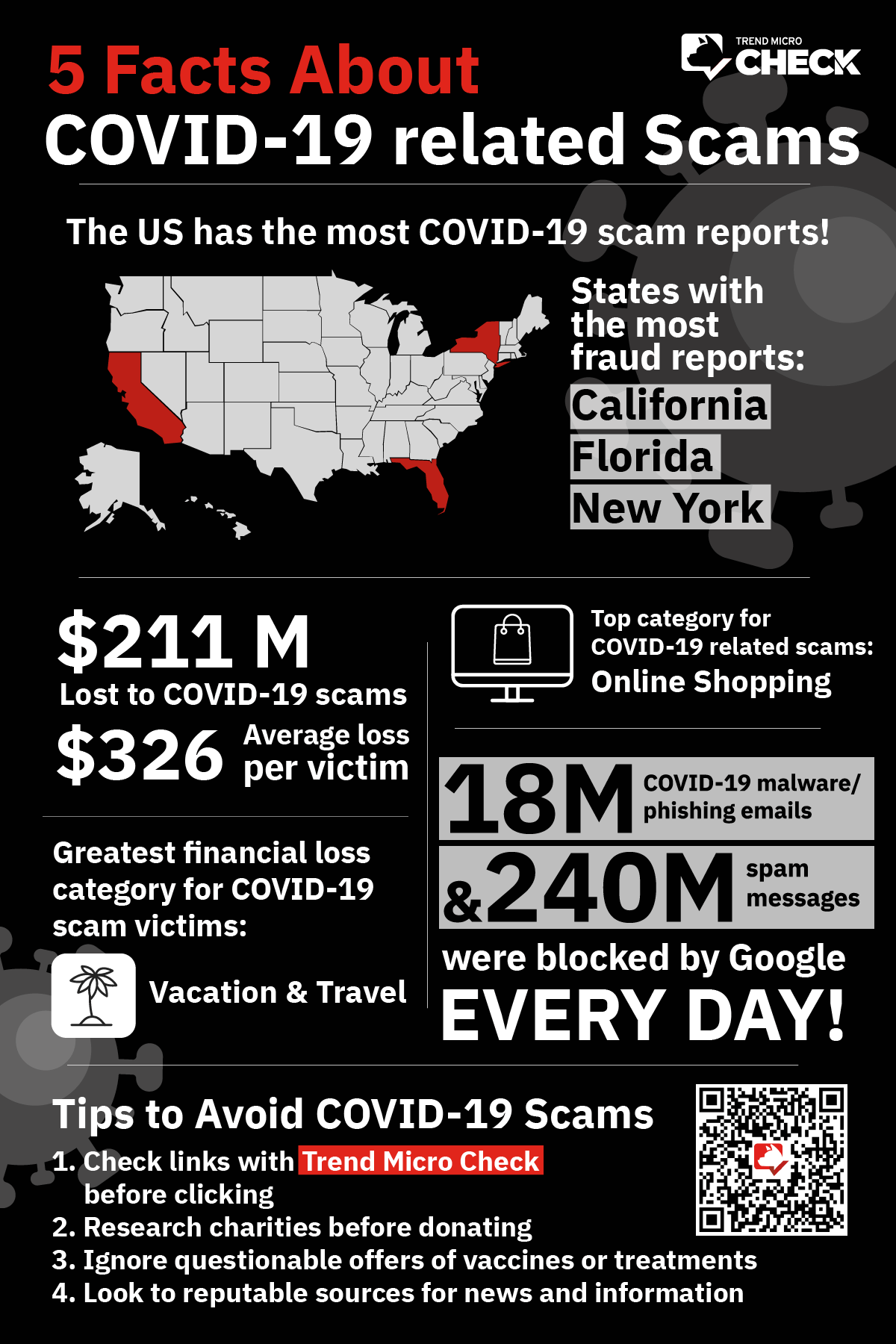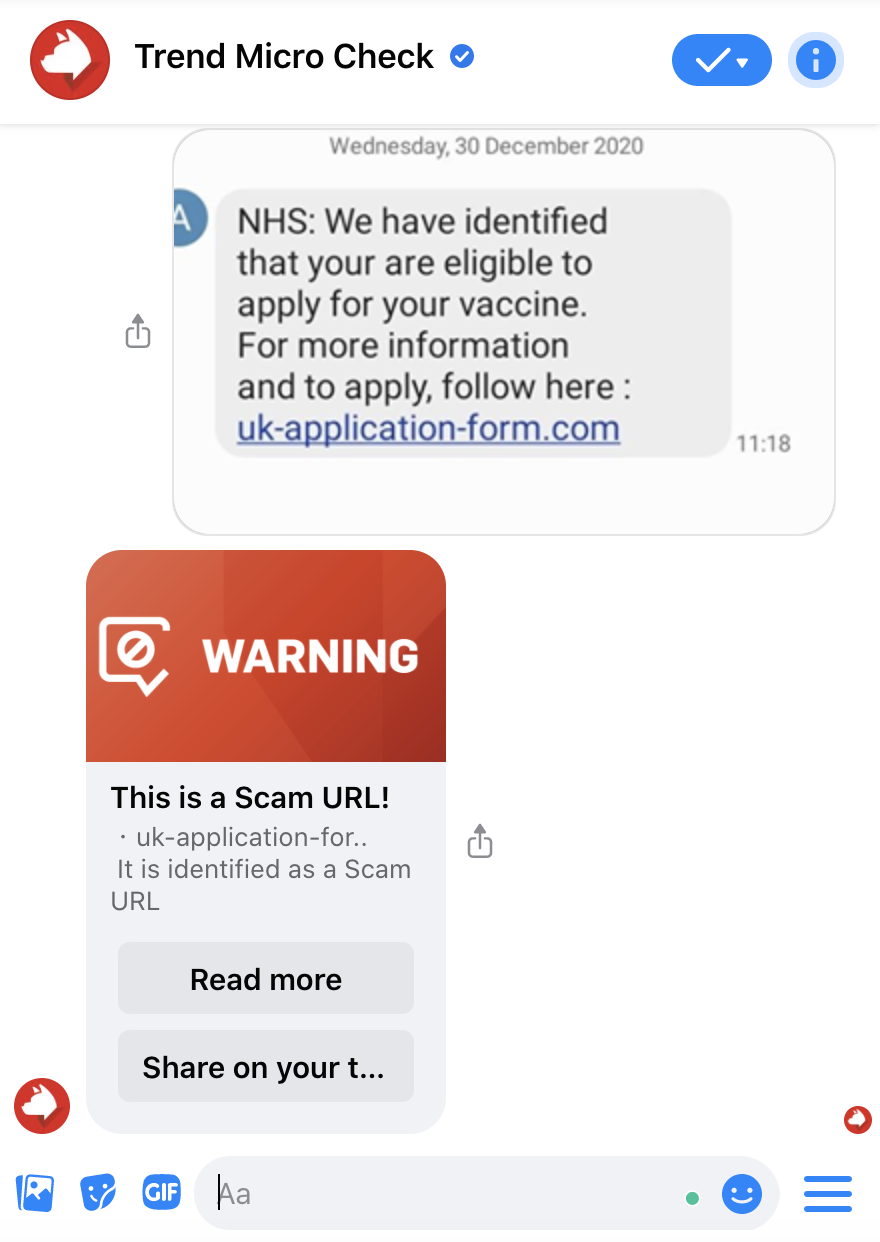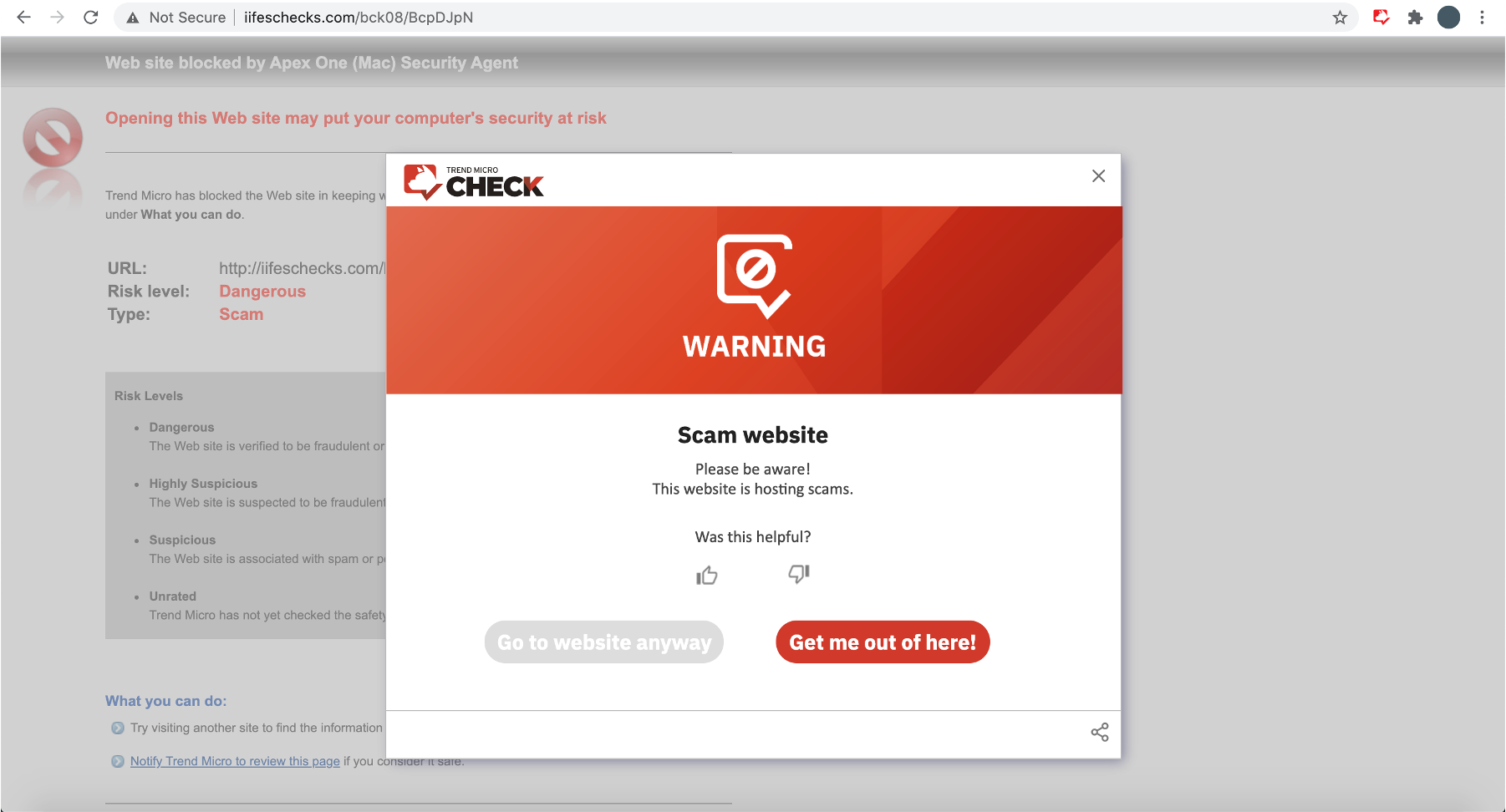It’s been a tough year. While some people are focused on COVID-19 and ways to get through the pandemic, scammers are looking for new ways to profit. Many COVID-19 related scams appeared in the beginning of 2020 and have continued to thrive over the year. In this post, we’ll tell you about the 3 most common COVID-19 scams and how you can avoid them. Do you know how to spot all of the following scams?

5 Facts About COVID-19 Related Scams
1. California, Florida, and New York have the most reports of COVID-19 scams. (Federal Trade Commission /FTC)
2. The total losses from COVID-19 related scams are more than 211 million dollars in the U.S., with an average loss of $326 per victim. (FTC)
3. Online shopping scams are the most reported COVID-19 scam. (FTC)
4. People lose the most money from COVID-19 scams related to vacation and travel. (FTC)
5. Google blocks 18 million COVID-19 related malware and phishing emails every day.
3 Most Common COVID-related Scams
COVID-19 Vaccine Scams
As people prepare for the COVID-19 vaccine, so do scammers, who see opportunities to victimize people. The Federal Bureau of Investigation (FBI) has stated that vaccine-related scams are likely to emerge in the near future. Scammers are likely to find their victims through phone calls, robocalls, phishing messages, as well as emails, and ads on social media.
Scammers may pretend to represent the CDC, FDA, or WHO, or medical companies such as Pfizer or Moderna. The scammers may guarantee early access to the vaccines in exchange for a deposit or fee.
You can use Trend Micro Check for immediate scam detection- copy/paste any suspicious link or send a screenshot to Trend Micro Check for immediate scam detection.

Trend Micro Check‘s Chrome extension can help you detect and block scam websites as well.

Fake Tests and Treatments
Ever since the Food and Drug Administration (FDA) authorized the first COVID-19 at-home test, fake products and kits that claim to prevent or treat COVID-19 have appeared, posing threats not only to victims’ money and privacy but also their health.
Some scammers impersonate the government and send messages to potential victims, falsely claiming that COVID-19 tests are required and demanding money. In other cases, scammers send phishing links that will take the victim to fake websites where they are encouraged to enter their personal information, such as Social Security numbers, addresses, or bank account details. In some situations, malware will begin to download as soon as a victim clicks on a link.
Scammers also sell unauthorized health products online. “It’s likely that the products do not do what they claim, and the ingredients in them could cause adverse effects and could interact with, and potentially interfere with, essential medications,” according to the FDA.
COVID-19 Charity Scams
The FBI has discovered numerous charity scams related to COVID-19. Scammers are taking advantage of people’s sympathy, reaching out to people and asking them to donate to charity. In reality, any donations go straight into the scammers’ pockets.
In some cases, scammers ask that the victim make their donation by wire transfer or by sending gift cards, and these types of requests should be considered red flags when evaluating whether to give. Scammers also send phishing links, luring victims into submitting personal information so that the scammer can steal money or use the victim’s information for identity theft.
How to avoid COVID-19 scams
1. Contact the organization/governmental agency directly to see if the contact is authentic. Scammers often impersonate governmental agencies or charities when contacting people through calls, text messages, or emails. Make sure that any messages are real before replying.
2. Don’t click on any links or download attachments. Check the safety of the web address with Trend Micro Check before jumping on a good deal. Send your links to Trend Micro Check for an immediate security check before clicking.
3. NEVER submit your personal information through email, text messages, unverified online forms, or over the phone. The Federal Communication Commission (FCC) states that government agencies will never call you to ask for personal information or money. Only send information through trusted, authorized channels when necessary.
4. Ignore questionable offers of COVID-19 vaccines or test kits. Scammers are selling products or services that they claim treat COVID-19. When an offer seems too good to be true, ignore it!
5.Do your research before donating money. The FTC suggests that you add keywords like “review”, “complaint”, and “scam” when researching charities. The FTC has a list to help you research where your charity dollar is going.
Read more about charity scams and how to avoid them: Protect Yourself from Veterans Charity Scams
If you think Trend Micro Check is helpful, please share to protect your family and friends! Click on the button below to try Trend Micro Check for free now:
